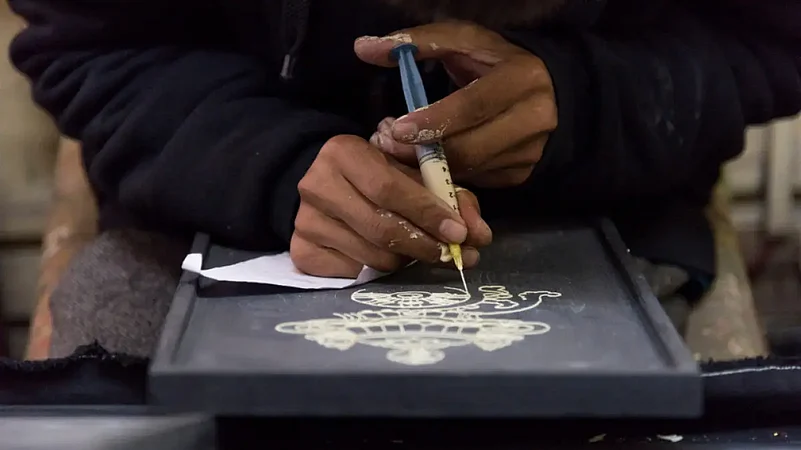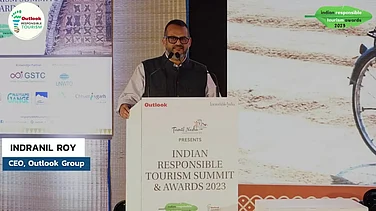Norbulingka, as partly its name suggests, is precious, for it is like a living embodiment of cultural heritage and an economic resource for Tibetan refugees. In Tibetan, 'norbulingka' means 'treasure garden'. It was the name of the summer residence of the Dalai Lama, located outside Lhasa.
It is therefore no surprise to come across the Norbulingka Institute in Dharamshala. Nestled in the mountains, surrounded by tea gardens in its vicinity, it is a self-sustaining institute preserving traditional Tibetan arts and crafts. It was set up by Kelsang Yeshi, Minister of the Department of Religion and Culture, and his wife Kim Yeshi who wished to create a haven for Tibetan arts and culture. Under the guidance of talented masters, they endow artists and craftspeople with ancestral knowledge, providing jobs to a community of over 300 Tibetans. The institute today works towards preserving Tibetan arts and culture, keeping them fresh, contemporary, and relevant. They have nine workshops including thangka painting, statue making, thangka applique, woodcarving, applique, wood painting, tailoring, weaving, and screen printing. You can even pick up products made by them at the store or online - they create product lines for each section which combine the contemporary with traditional Tibetan design.
Advertisement

The institute was designed to follow the proportions of Avalokitesvara, the Tibetan deity of compassion. And the workshops and offices were constructed in the shape of his thousand arms. It was built in the Tibetan architectural style by woodcarvers and carpenters. Thangka painters did the frescoes on the walls of the temple. A 14ft gilded Buddha crafted from hand-hammered sheets of copper was placed in the temple. And in 1995, Norbulingka Institute was officially inaugurated by His Holiness the Dalai Lama.

Advertisement
As a visitor, you can explore the campus and immerse yourself in Tibetan art. They also offer workshops - you can choose a traditional Tibetan art form such as thangka painting, wood carving, wooden statue-making, applique embroidery, or wood painting. The workshops have flexible timings and dates, and they do not need a prior booking or appointment. Even as a busy traveller, you can take part in a half-a-day workshop here. You will get to learn directly from masters and apprentices specialising in these ancient art forms. And by the end of the day, you would have created at least one art piece of your own.

The effort towards preserving traditional Tibetan artforms is intrinsic to their Buddhist practice of attaining spiritual enlightenment. As Tibetan culture revolves around the religious instead of the secular, the art forms provide support for Buddhists practicing meditation. For example, thangka painting is a religious art form where Bodhisattvas are made in exact proportions and genuine colours in accordance with Buddhist literature. During the art workshops, visitors and guests are intrinsically engaged with these art forms which help in preserving the Tibetan Buddhist culture, and these art forms, and in turn providing financial assistance to their hard work.
Advertisement
They also have three guesthouses and two restaurants. Around the instititute you will find a bevy of cafes, restaurants, and shops.
For more information on Norbulingka Institute, check here.
Address: Palampur - Dharamshala Rd, Sidhpur, Himachal Pradesh 176057




















